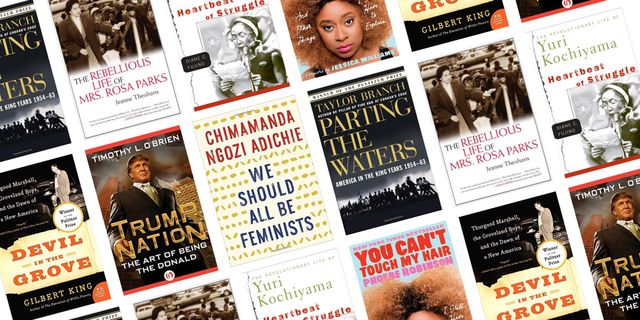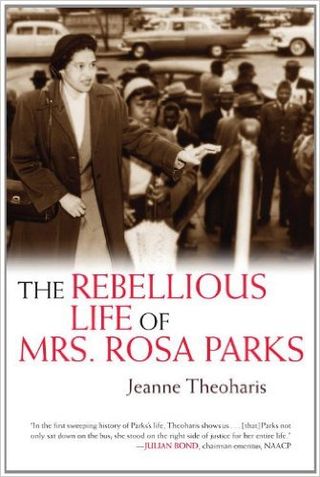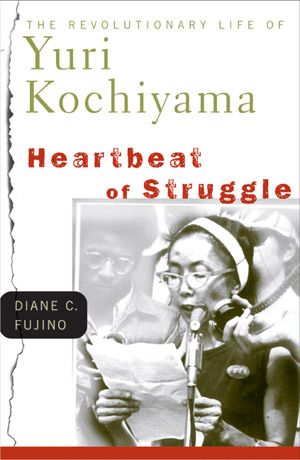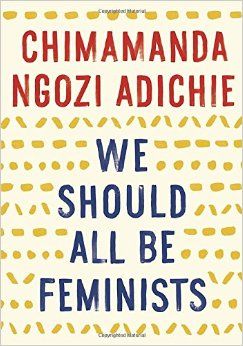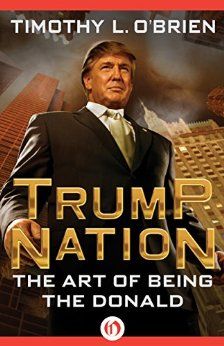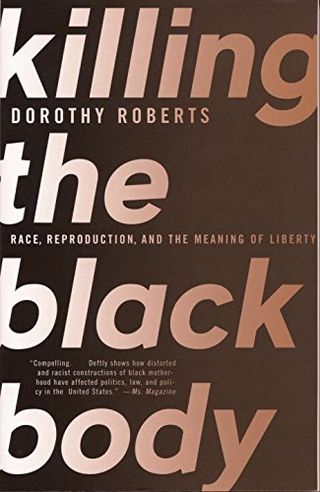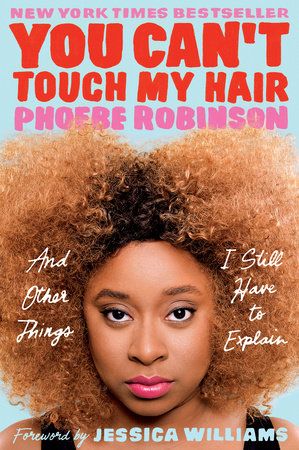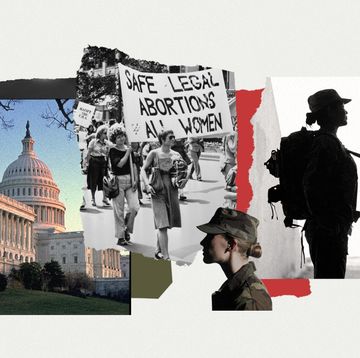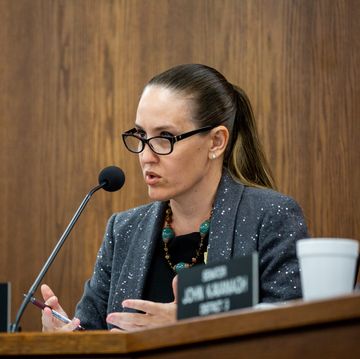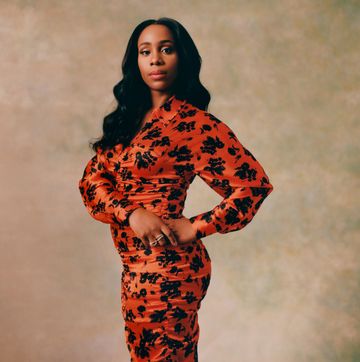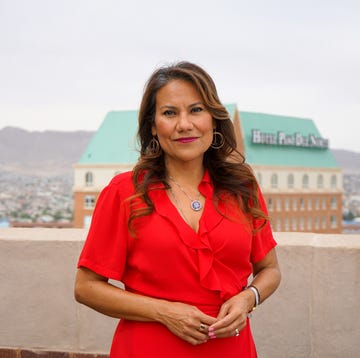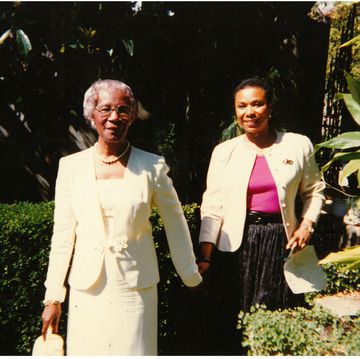On Saturday, January 21, hundreds of thousands of women, men, nonbinary folks, and children are expected to join together in Washington, D.C., as well as in a growing number of sister marches around the country.
As students, we like to prepare by doing some reading in advance, and as writers we know the importance of thorough background research. So if you'll be joining us in the District, at an affiliated march, or in spirit, we want to offer you some suggestions. There won't be a quiz, so you can always catch up in the weeks and months to come. We hope these texts can serve as a means to keep the conversation going.
Ground this moment in some history.
No matter what President-elect Trump says, Representative John Lewis was never *just* talk. Check out his National Book Award-winning graphic novel trilogy, March.
The Rebellious Life of Mrs. Rosa Parks by Jeanne Theoharis is a must read. When attorney general nominee Jeff Sessions lays claim to some sense of enlightenment when pointing to his commendation of Rosa Parks—"It is fair to say that in the history of this effort, the most dramatic and productive chapter was ignited by the lady we seek to honor"—you'll know the full dimension of her story. Barbara Ransby's biography of civil rights leader Ella Baker, Ella Baker and the Black Freedom Movement, is a necessary reminder that women have been the central leaders of justice movements, even when their contributions and impact are eclipsed in our public memory by charismatic male leadership.
Read Lynne Olson's Freedom's Daughters and you will know the shoulders you are standing on and the giant footsteps you are marching in this weekend. For the same reason, we recommend you dig into A Dolores Huerta Reader, a collection of the writings and interviews of one of the most influential labor and civil rights advocates of the 20th century.
Then pick up a copy of Diane Fujino's Heartbeat of Struggle: The Revolutionary Life of Yuri Kochiyama and learn about a woman whose radical contributions to the black liberation struggle began with forcible relocation to an internment camp during World War II.
Finally, spend some time with Taylor Branch's America in the King Years. This trilogy is the best reminder that justice movements are long, messy, and nonlinear.
Okay, time to get our theory and strategy together.
The march's co-chairs have written and spoken about why intersectional organizing is necessary. Learn what they're talking about when they say "intersectional" with Dr. Kimberlé Crenshaw's foundational article "Mapping the Margins: Intersectionality, Identity Politics, and Violence Against Women of Color." Patricia Hill Collins' Black Feminist Thought: Knowledge, Consciousness, and the Politics of Empowerment is the bible of black feminism, outlining how oppression threatens black women's lives from pop culture to public policy. "La Guera" by Cherrie Moraga in This Bridge Called My Back: Writings by Radical Women of Color is an important early work by a queer Chicana feminist informing theory of addressing all facets of oppression in the lives of queer women of color simultaneously and not separately.
We challenge you to commit the entire Combahee River Collective Statement to memory, especially since 2017 marks the 40th anniversary of this foundational black feminist gathering. Grounded in these intersectional classics, get into the newest iterations of intersectionality, with Chimamanda Ngozi Adichie's We Should All Be Feminists (obviously we should). And don't miss Alicia Garza's Herstory of the #BlackLivesMatter Movement if you want to see how sisters are working to get us all free.
During her lifetime of activism, Grace Lee Boggs never lost her optimism, in part because her faith was in the rooted in the power of people. Read her practical guide to The Next American Revolution: Sustainable Activism for the 21st Century.
Audre Lourde defined the Sister Outsider, bell hooks moved feminist theory From Margin to Center, Cathy Cohen embraced the Punks, Bulldaggers, and WelfareQueens.
The women's march isn't an academic exercise, it is an act of real politics, and much is at stake. These selections will help you prepare.
Get to know the voting record of your Congressional representatives. Then read Timothy O'Brien's TrumpNation: The Art of Being the Donald. Trump sued O'Brien in reaction to the book, meaning he may be the only person in the American media who has seen the President-elect's tax returns in the last decade. Pick up Gilbert King's Devil in the Grove to remind yourself of the importance of questioning those in positions of power.
As Islam continues to be blamed and mischaracterized by elected officials and in the public sphere, educate yourself on the world's second-largest religion: Lesley Hazleton's The First Muslim: The Story of Muhammad provides an early history of the founding of Islam; John Esposito and Dalia Mogahed's Who Speaks for Islam: What a Billion Muslims Really Think offers a discussion of the faith and political views of Muslims based on the actual voices and beliefs of Muslims; and Eboo Patel's Sacred Ground: Pluralism, Prejudice, and the Promise of America discusses how 9/11 affected Muslims in the United States and the promise of interfaith movements.
Dorothy Roberts' Killing the Black Body has just been re-released for its 20th anniversary. Read it to understand how much is at stake for reproductive rights. This reporting by the Los Angeles Times and ELLE.com's feature on 20-week abortion bans are chilling reminders of how much has already been lost.
This New Yorker profile of New York City Council member Ritchie Torres takes a local look at the devastating potential impact of the Department of Housing and Urban Development disinvesting in public housing. Ari Berman's Give Us the Ballotis a reminder of what is at stake if we don't reauthorize the Voting Rights Act. The Manufactured Crisis: Myths, Fraud, and the Attack on America's Public Schools is a scathing look at who benefits from the story that our schools are broken. (Hint: private interests like those represented by Betsy DeVos, Trump's nominee for secretary of education.)
Finally, as a reminder, Daniel Moynihan's 1965 report, The Negro Family: The Case for National Action, tells us just how dangerous it is when an administration allows racial myths to shape public policy.
At last, it is time to let the voices of girls and women speak for themselves. We call this #GirlPower, #BlackGirlMagic, #BrownGirlMagic, #GirlsLikeUs
(R)evolution: The Girls Write Now 2016 anthology is a collection of young women writing for their lives in an NYC summer program called Girls Write Now!
Amani Al-Khatahtbeh's Muslim Girl: A Coming of Age undermines stereotypes but, more importantly, gives voice to a smart, funny, and committed young writer. Phoebe Robinson's You Can't Touch My Hair tackles race and gender with humor and politically driven wit. Her suggestions for the first woman president encompass all the ill-fated expectations of the 2016 election.
Pick up the Crunk Feminist Collection for essays from some of our favorite sister bloggers. Before there were Crunks, there were hip-hop feminists. Joan Morgan's When Chickenheads Come Home to Roost: A Hip-Hop Feminist Breaks It Down is officially a classic.
Janet Mock is working on the second volume to her coming-of-age memoir, Redefining Realness: My Path to Womanhood, Identity, Love & So Much More. Read the first while you wait for the next one. And Leslie Feinberg's Stone Butch Blues is a necessary read if you think North Carolina's House Bill 2 (the transgender "bathroom bill") is just about bathrooms.
The Sisters Are Alright: Changing the Narrative of Broken Black Women in America by Tamara Winfrey Harris reminds us of what is right with black women as media and other institutions recycle tales of what's wrong.
Happy reading. See you in D.C.!
